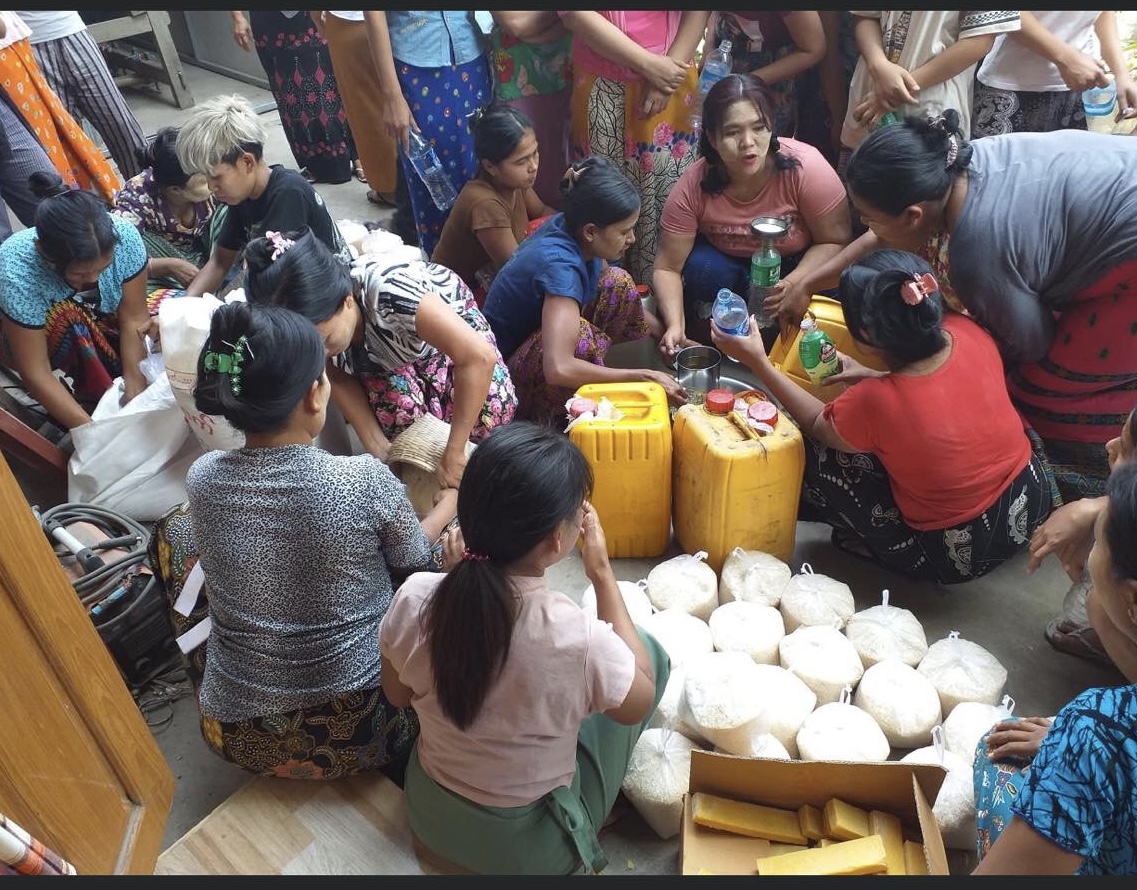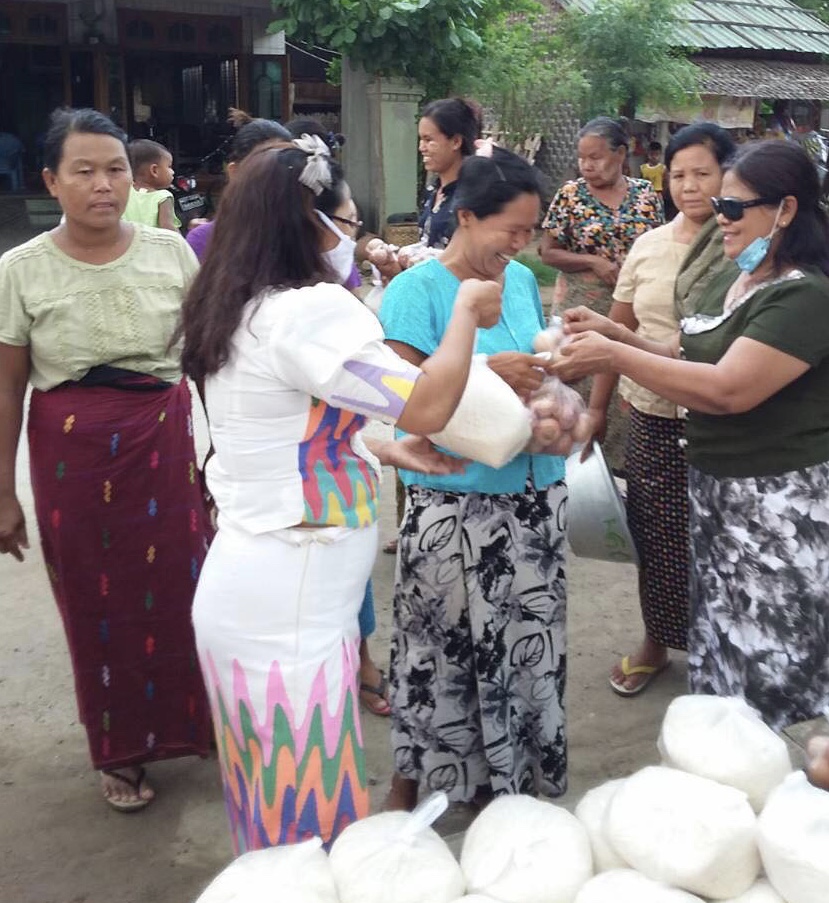Blog

- Fieldnotes
Impact of Covid-19 on weaving industry
My workshop was always running and almost all the products were selling well before the outbreak of the disease. The workshop had to close after the outbreak. Some fabrics are still left to be completed on the loom. The customers are not buying the clothes because everyone was [and is] trying to get enough food and they aren’t interested in buying the cloth.
- Shared by an owner of luntaya acheik workshop.
The outbreak of Covid -19 in Myanmar started in the fourth week of March 2020. In order to prevent its spread the government imposed rules which included prohibition on celebration of the novitiation and wedding ceremonies, and gathering of people among other rules. Because of the ban on people gathering, the workshops, including weaving workshops, closed down and the weavers were jobless.
These restrictions coincided with the season of weddings, novitiation ceremonies and festivals, which leads to high sales and profits. But Covid-19 had a huge negative impact of this. The sales had dropped to nearly zero. The weaving industry – weavers and owners- continue to face problems.
One of the owners of a weaving workshop shared:
We do both hand and power looms. Before the outbreak of Covid- 19, we worked five days in the power loom because of the falling sales. The hand loom was run daily due to an increase in sales [because of the festival season]. When the first confirmed coronavirus case was reported in my country, the weaving-related activities were suspended. The customers also reduced.

Distribution the basic food products from the employer to the employees (upper and lower)
As a result, the employers faced a lot of difficulties but since many of them are rich, their difficulties are not same as those of the workers. Weavers are still struggling to survive as they are daily wage labourers. Fortunately, the government and some of the owners have provided them with the basic food such as rice, oil, onions, eggs and beans. The Textile Industries Association (Mandalay) (TIAM) and Mandalay Region Chamber of Commerce and Industry have sold the basic food products at lower prices.

Distribution the basic food products from TIMA to the employees
One of the owners shared,
I have about 300 employees. They were in great trouble because of the closure of the weaving workshop. So, I have divided them into three groups and provided them the basic foods. They are very happy for getting this. But they would feel better if the work was to resume.
Their supplies were sufficient for a few days. So they are trying to work hard to provide for their families during the disease.
- Log in to post comments


